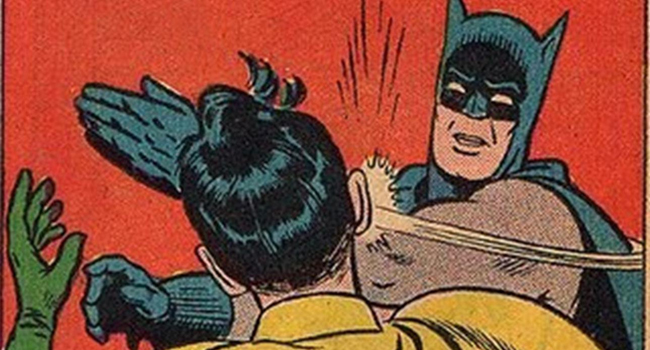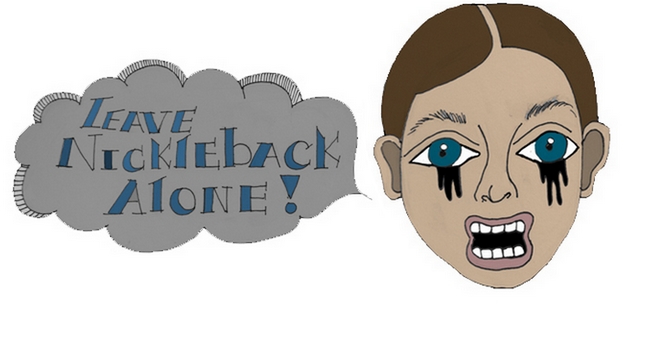For many of us, nothing is more satisfying than discovering an obscure indie group and sharing it with fellow music lovers. We are enchanted by indie bands because of what they are—independent, noncommercial, pure, experimental, non-conformists. But when an indie band makes a mainstream hit, the floodgates open. Sharing them with other musical genres, specifically pop, can be unsettling and disappointing for loyal indie followers. Crossover hits are like gateway drugs to the dark side of pop music. After that big hit, it’s often hard for a band to recover their frustrated faithful fan base, and even more difficult to avoid descending into the annals of forgotten mainstream music.
Consider the following three indie bands with crossover hits, classified by how they’ve stuck to their stuff (or not): the sell outs, which are seemingly willing to sell their musical souls to get a few minutes of fame on the pop stage; the genre benders that are able to hop between categories and sustain a diverse following; and staying power, bands that focus more on their music than attracting the largest possible audience.
Sell Outs
In the late 1990s, Thomas Mars, Deck d’Arcy, Laurent Brancowitz and Christian Mazzalai came together to form a garage band in Versailles, France. Within a decade, this group, Phoenix, would not only have several songs gracing the silver screen, but it would also become the 2009 Grammy Award winner for Best Alternative Music Album. What started out as a funky, indie electro/new wave group has turned into a trans-generational, multi-genre mainstream band. Songs from Phoenix’s most well-known album Wolfgang Amadeus Phoenix can be heard across the airways, as well as in soundtracks to TV shows (“Cougar Town,” “The Vampire Diaries,” “One Tree Hill,” “CSI,” etc.) and on the big screen (Alice in Wonderland and Valentine’s Day, just to name a couple). Phoenix’s breakout album Wolfgang was such a success that it warranted a 52-minute documentary, From a Mess to the Masses, to showcase the band’s rise to fame.
While tracks “Lisztomania,” “1901” and “Lasso” are most susceptible to popularity, not all the album’s songs are crossover worthy. What’s most frustrating for Phoenix lovers (and anyone who appreciates indie) is that the songs that made the band so popular aren’t even the most eccentric ones on the album. It’s doubtful any soccer moms are singing along to “Love Like A Sunset” parts I or II. Phoenix is working on its next album. Unless the band produces 10 songs similar to “1901,” it’s doubtful it will be able to hold on to its mainstream spotlight. And after hopping over to the pop dark side, it’s questionable whether indie fans will want to reunite with them.
Some other bands caught in this category include The Fratellis, Snow Patrol, Caesars and practically every other obscure band that has been featured in an iPod commercial. All too often these indie bands jump on an opportunity to be in the limelight because of one catchy single, and then they’re never heard of afterward.
Genre Bender
Adele has made a name for herself by singing about love gained and love lost. Though under independent label XL, Adele has produced popular songs from the beginning. Her songwriting, voice and overall approach are unique; she has managed to gain the respect of the mainstream, music snobs and indie lovers. Her debut album 19 received four Grammy Nominations in 2008: Best New Artist, Record of the Year, Song of the Year and Best Female Pop Vocal Performance (for “Chasing Pavements”).
Despite her popularity, Adele holds on to many indie characteristics—an independent record label and a unique sound that rubs shoulders with jazz, blues and folk. In 2011, Adele released her second album, 21, with no sophomore slump sight. More than a couple of tracks have been hits, which further ignited her popularity. Adele is unrivaled both in her fiery voice and in her followers, who show know signs of losing interest. Her subject matter is universal, and appeals to a variety of groups. She moves with elegance and ease from genre to genre without losing ground with her followers.
Florence + the Machine, Feist, Mumford & Sons and Ben Folds have similar characteristics to Adele, attracting different kinds of listeners, yet maintaining a steady fan base.
Staying power
Singer, guitarist, ringleader Isaac Brock would probably give you the finger if you tried to tell him Modest Mouse was mainstream. Despite platinum-selling albums and a cult-like following, Modest Mouse has managed to cling to indie inclinations. The band’s song lyrics and subjects, instruments, vocals and cover art don’t reflect what is typical of a crossover hit. But that doesn’t stop the masses from eating up songs such as “Float On” or “Dashboard.”
What’s more important than any award nominations or time spent on Billboard lists is Modest Mouse’s staying power. The group has released five studio albums and several EPs. It has evolved as a band, and it still has sold out shows. The fans aren’t going anywhere. Those are great feats for any musical act. Modest Mouse might have crossover hits here and there, but the members don’t let it go to their heads or affect their focus on the music.
Modest Mouse isn’t alone in this category. Some other bands with comparable staying power include Arcade Fire, Bright Eyes, The Strokes and The Shins. Whether they appeal to indie crowds or are topping Billboard charts, it doesn’t seem to matter to them. It’s about the music; the genre categorizing can follow.
While it’s frustrating to think that a favorite band may have sold out for becoming so popular, it’s not always something that can be prevented. At the end of the day, we indie music lovers just have to hope our beloved bands have the good sense to let the crossover hullabaloo pass by and not forget their roots and loyal followers.



